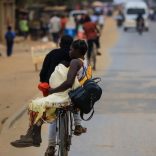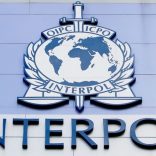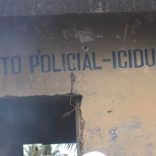Mozambique: Vandalised medium-voltage electric pole leaves part of Chimoio without power
Maputo: “Recapture of jail escapees from prisons proceeding at a good pace”

File photo: Romeu da Silva/DW
- The recapture of more than 1,500 inmates who escaped from prisons in Maputo province in December during the post-election demonstrations in Mozambique, is proceeding “at a good pace”, said the Minister of Justice yesterday.
“The investigation is with the judiciary. […] We believe that we are [proceeding at] at a good pace. We have been receiving the return of those who escaped almost every day,” said Mateus Saize, Minister of Justice, Constitutional and Religious Affairs, in Maputo.
Speaking on the sidelines of the first National Human Rights Forum, Saize said he could not provide many details, due to the principle of separation of powers.
“The investigation is not being conducted by the government, but by the judiciary. And it would be the judiciary that would be held accountable. The justice system is responsible for the prisons. But when someone escapes, there are other forces which respond,” he added.
The issue at hand is the escape, on December 25, of 1,534 inmates, following riots in the Special Penitentiary of Maximum Security and Maputo Provincial facilities, located just over 14 kilometres from the centre of the Mozambican capital, Maputo.
According to the National Penitentiary Service of Mozambique (SERNAP), 35 people died during the riot, which also announced in January that 332 inmates had been recaptured.
In the same context, around 2,000 inmates escaped from prisons across the country last year, in events which , according to the police, were the responsibility of post-election protesters.
On June 9, Mateus Saize reported that “around half of those who escaped” were already back in the hands of the prison authorities.
Mozambique experienced almost five months of social tension, with demonstrations, initially in protest against the October 9 election results, called by former presidential candidate Venâncio Mondlane, resulting in the deaths of 400 people and the destruction of property.
The Mozambican government confirmed at least 80 deaths, in addition to the destruction of 1,677 commercial establishments, 177 schools and 23 health units during the demonstrations.
On March 5, Mozambican parties with seats in parliament and in municipal and provincial assemblies signed a political commitment with the President of Mozambique, aiming at state reforms, which was later transformed into law by the Mozambican parliament.
On March 23, Mondlane and Chapo met for the first time and a commitment was also made to end the post-election violence in the country, having met again on May 21 with an agenda to pacify the country.












Leave a Reply
Be the First to Comment!
You must be logged in to post a comment.
You must be logged in to post a comment.